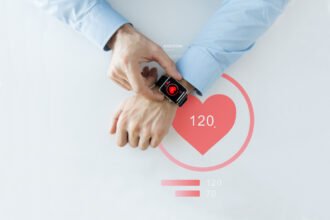 How many stories have you read or seen lately about Lance Armstrong? As a cancer survivor I am ready to move on. He lied and he bullied. He beat cancer – with the help of sound medicine and maybe good fortune. I wore one of those yellow bracelets for more than 10 years as an affirmation of living beyond cancer.
How many stories have you read or seen lately about Lance Armstrong? As a cancer survivor I am ready to move on. He lied and he bullied. He beat cancer – with the help of sound medicine and maybe good fortune. I wore one of those yellow bracelets for more than 10 years as an affirmation of living beyond cancer.
 How many stories have you read or seen lately about Lance Armstrong? As a cancer survivor I am ready to move on. He lied and he bullied. He beat cancer – with the help of sound medicine and maybe good fortune. I wore one of those yellow bracelets for more than 10 years as an affirmation of living beyond cancer. I don’t wear the bracelet anymore but I still respect the LIVESTRONG Foundation even if I don’t respect Lance.
How many stories have you read or seen lately about Lance Armstrong? As a cancer survivor I am ready to move on. He lied and he bullied. He beat cancer – with the help of sound medicine and maybe good fortune. I wore one of those yellow bracelets for more than 10 years as an affirmation of living beyond cancer. I don’t wear the bracelet anymore but I still respect the LIVESTRONG Foundation even if I don’t respect Lance.
Rather than saying one more word about a disgraced athlete who shows cancer patients come with a wide range of morals, I wanted to switch gears and write about something that is much more significant for you and me: BIG DATA.
Ask anyone in the database field and they can tell you what it means. Since almost everything we do is becoming digitally tracked, it is putting all those touchpoints together to create much more significant information. And it’s in the medical area where this could have a “big” payoff for us, especially in genetic conditions and cancer.
Interestingly, it’s the British who are taking the lead in using big data to advance healthcare. They have 50 million people in their National Health Service and lots and lots of data they can crunch. Increasingly, it is becoming relatively cheap to run a whole genetic profile of a patient. It used to cost billions; soon it may be $100. Incredible!
What that means is that first the British, and then researchers around the world, will be able to sort through millions of data bits and bytes super fast and draw conclusions on how diseases maybe be similar or different in people, how certain genetic types react to a specific medicine, how early screening of people with a specific genetic defect could head off future disability. Those are just but a few of the benefits and the British are really excited about Big Data.
To be sure, there are critics who worry about privacy. They want citizens to be able to opt out of their data being used. But in the meantime the government and most scientists are really convinced that Big Data will be the key to curing, controlling or preventing many serious conditions.
So I was thinking, isn’t this a much more significant story than the drama about Lance? Nothing about him cures my cancer. But a lot about Big Data just might.
Thanks to our British friends for leading the way. As always, I welcome your comments.
Wishing you the best of health!
Andrew






